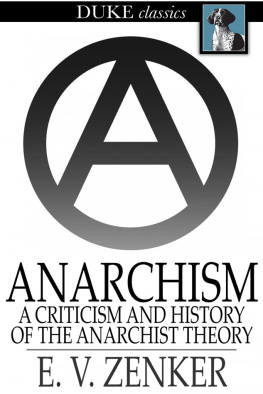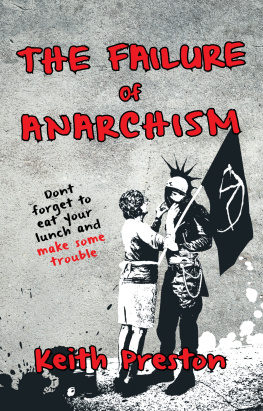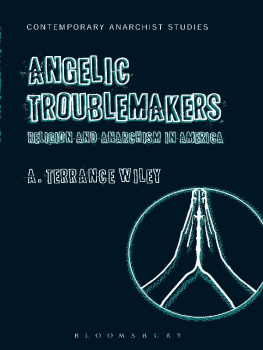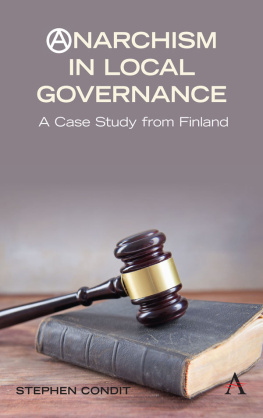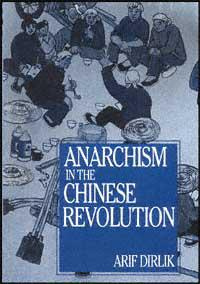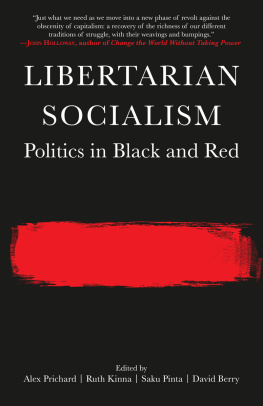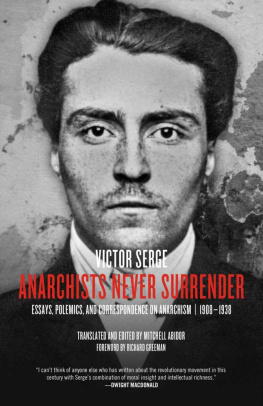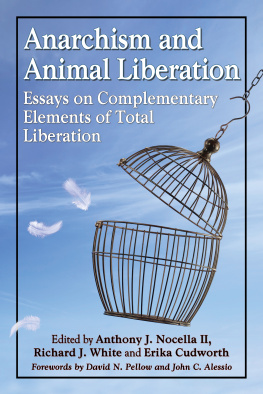Contents
Guide
Anarchism and the Black Revolution
A powerfuleven startlingbook that challenges the shibboleths of white anarchism. Its analysis of police violence and the threat of fascism are as important now as they were at the end of the 1970s.
Perhaps more so.
Peter James Hudson, Black Agenda Report
Black Critique
Series editors: Anthony Bogues and Bedour Alagraa
We live in a troubled world. The rise of authoritarianism marks the dominant current political order. The end of colonial empires did not inaugurate a more humane world; rather, the old order reasserted itself.
In opposition, throughout the twentieth century and until today, anti-racist, radical decolonization struggles attempted to create new forms of thought. Figures from Ida B. Wells to W.E.B. Du Bois and Steve Biko, from Claudia Jones to Walter Rodney and Amlcar Cabral produced work which drew from the historical experiences of Africa and the African diaspora. They drew inspiration from the Haitian revolution, radical black abolitionist thought and practice, and other currents that marked the contours of a black radical intellectual and political tradition.
The Black Critique series operates squarely within this tradition of ideas and political struggles. It includes books which foreground this rich and complex history. At a time when there is a deep desire for change, black radicalism is one of the most underexplored traditions that can drive emancipatory change today. This series highlights these critical ideas from anywhere in the black world, creating a new history of radical thought for our times.
Also available:
Moving Against the System:
The 1968 Congress of Black Writers and the Making of Global Consciousness
Edited and with an Introduction by David Austin
I am a Revolutionary:
Fred Hampton Speaks
Edited by Fred Hampton Jr. and Bedour Alagraa
A Certain Amount of Madness:
The Life, Politics and Legacies of Thomas Sankara
Edited by Amber Murrey
Cedric J. Robinson:
On Racial Capitalism, Black Internationalism, and Cultures of Resistance
Edited by H.L.T. Quan
Black Minded:
The Political Philosophy of Malcolm X
Michael Sawyer
Red International and Black Caribbean Communists in New York City,
Mexico and the West Indies, 19191939
Margaret Stevens
The Point is to Change the World Selected Writings of Andaiye
Edited by Alissa Trotz

First published 2021 by Pluto Press
New Wing, Somerset House, Strand, London WC2R 1LA
www.plutobooks.com
Copyright Lorenzo Komboa Ervin 2021
The right of Lorenzo Komboa Ervin to be identified as the author of this work has been asserted in accordance with the Copyright, Designs and Patents Act 1988.
British Library Cataloguing in Publication Data
A catalogue record for this book is available from the British Library
ISBN 978 0 7453 4580 2 Hardback
ISBN 978 0 7453 4581 9 Paperback
ISBN 978 0 7453 4575 8 PDF
ISBN 978 0 7453 4579 6 EPUB
This book is printed on paper suitable for recycling and made from fully managed and sustained forest sources. Logging, pulping and manufacturing processes are expected to conform to the environmental standards of the country of origin.
Typeset by Stanford DTP Services, Northampton, England
Simultaneously printed in the United Kingdom and United States of America
Contents
Dedicated to Martin Sostre, my late mentor; JoNina Ervin, my loving wife; Munyiga Ras Nokashere, staunchest comrade of the Black Autonomy movement from the beginning and throughout; William C. Anderson, who pushed me to re-write and to come to Pluto Press for this edition; Bedour Alagraa, of the Black Critique series, and others who helped and encouraged me to write this edition. I also give credit to the Institute for Anarchist Studies, which financed and encouraged me to write the previous edition of the book, and, by extension, this definitive edition. Thank you all.
Foreword
By William C. Anderson
Its not an exaggeration to say that Lorenzo Komboa Ervin has changed the world. Countless people have been affected and influenced by his work throughout the years. His story is a testament to the extraordinary possibilities that lie just beneath the surface of the many passing moments of our lives. Unforeseeable, explosive events may erupt just because of someone making the decision to take a chance. Lorenzo decided to do this many times and thats whats led to yet another major event in his life. The first official publication of his legendary book, Anarchism and the Black Revolution, is yet another monumental occurrence in a life that almost seems cinematic.
Lorenzo Komboa Ervin was born in 1947 in Chattanooga, Tennessee, to a mother who was a domestic worker and a father who was a chauffeur. With two parents working in service to wealthier white people in the apartheid of the Jim Crow South, it wasnt long before Lorenzo intimately understood the risks of being Black. At the age of five, surrounding white community members attempted to burn down his family home. The traumatic near death experience he wouldnt completely understand until he was older runs parallel to his radical trajectory. The symbolism in it shouldnt be neglected because it frames much of whats to come. As recalled by Harry Belafonte, Dr. Martin Luther King, Jr. once said that he believed Black America was integrating into a burning house. A question that responds to such a statement was raised in James Baldwins The Fire Next Time, Do I really want to be integrated into a burning house? Ervins story answers no, time and time again.
As a young man, Lorenzo joined the army during the Vietnam War where he became an anti-war activist. This was the year the first U.S. combat troops arrived on the ground in a country that has still yet to recover from all the damage that was done by imperialist forces. At the same time, the USA was embroiled in the Civil Rights movement. The Voting Rights Act was signed this same year that Alabama police assaulted marchers on Bloody Sunday in Selma and attacked activists associated with Student Nonviolent Coordinating Committee (SNCC). This historic movement organization would attract Lorenzo after his anti-war activism saw him court martialed, prosecuted, and ultimately discharged.
He became affiliated with SNCC and was influenced by the organizer Mukasa Dada, formerly known as Willie Ricks who coined the Black Power slogan that was popularized by Kwame Ture (formerly Stokely Carmichael) and ultimately the Black Panther Party. Lorenzo had been selling the Black Panther newspaper while working with SNCC who had alliances with the party. He eventually started working with the party directly as a member, but hed eventually grow disillusioned with the leadership style among other aspects of the Panthers. Then his circumstances shifted dramatically after Martin Luther King, Jr. was assassinated. Rebellions and uprising broke out across the country and as a result, Tennessee state officials convened grand juries to investigate and punish Black activists and civil rights groups on felonious charges. Accused of gun running and threatening to bomb a Klan sympathizing judge, Lorenzo fled to Atlanta. He decided to take his flight from the charges levied against him even further and hijacked a plane to Cuba.


